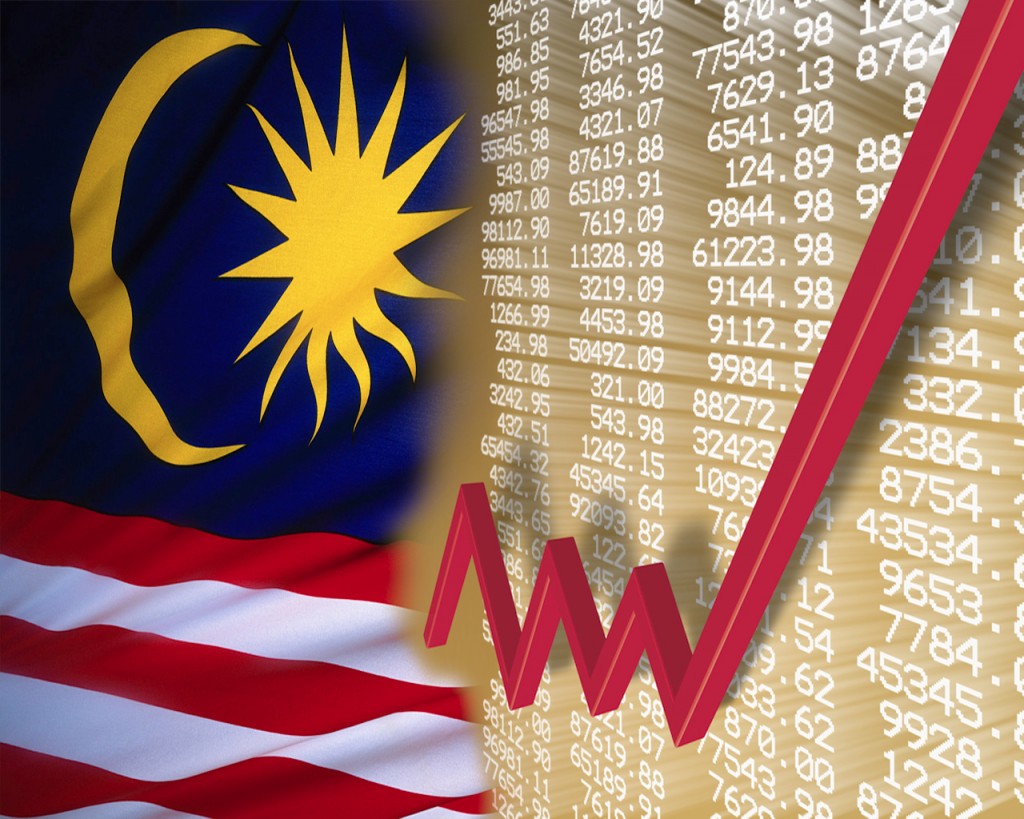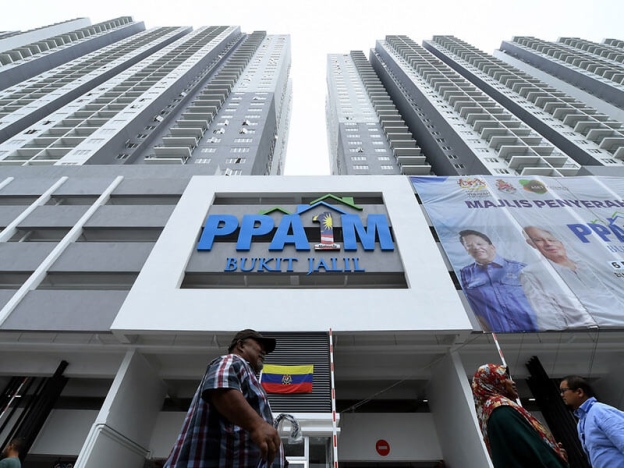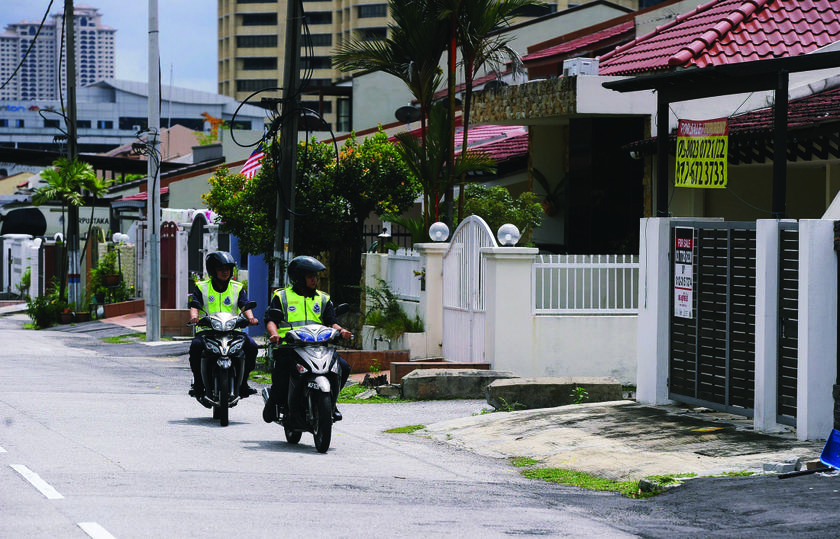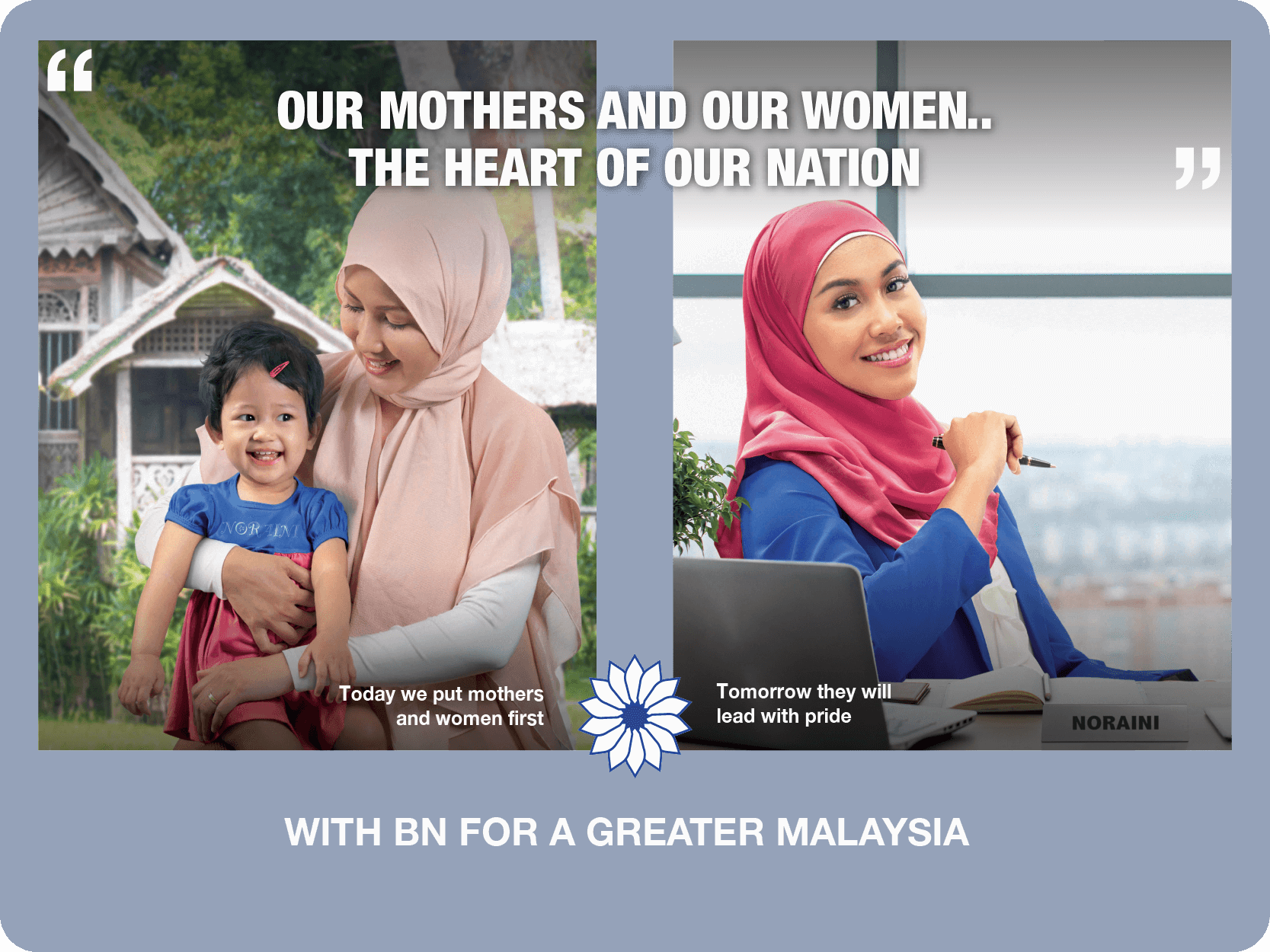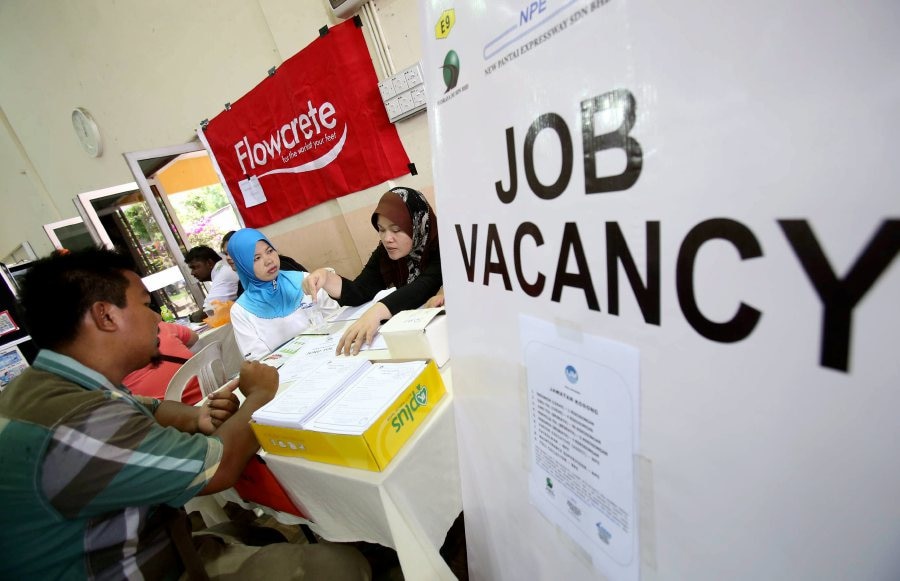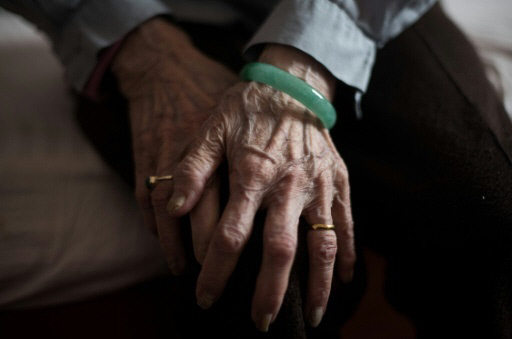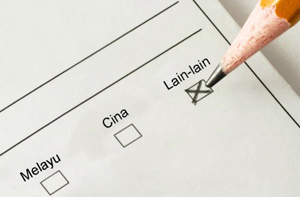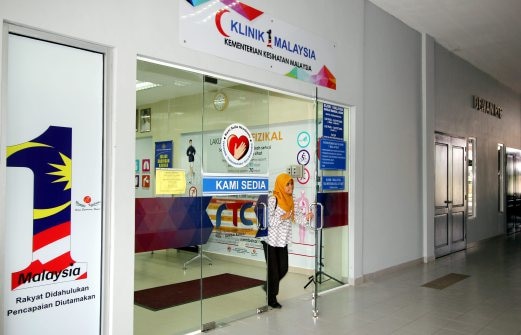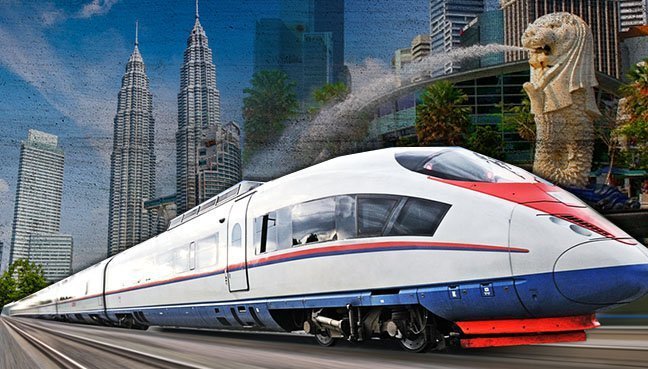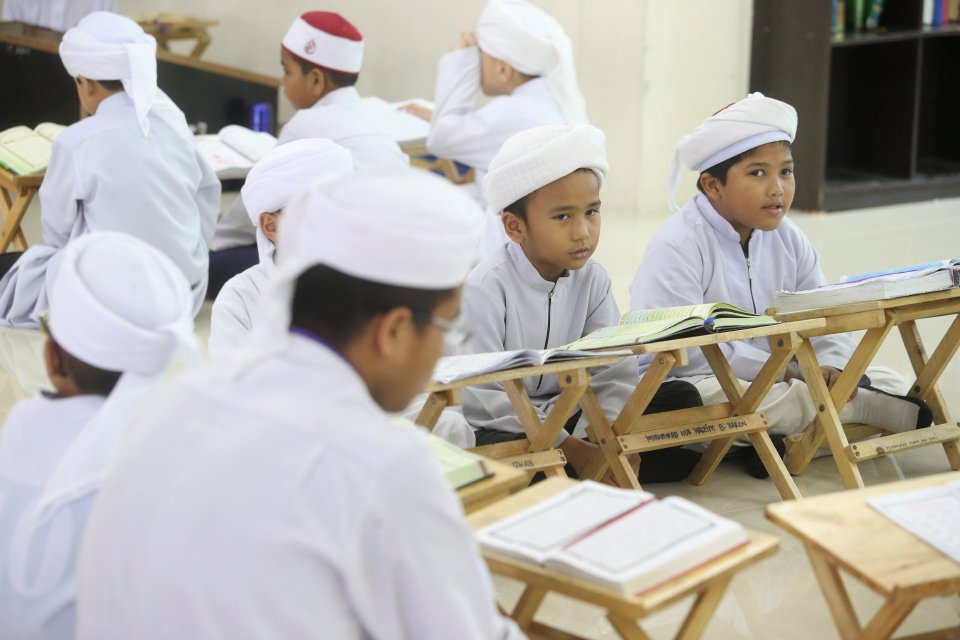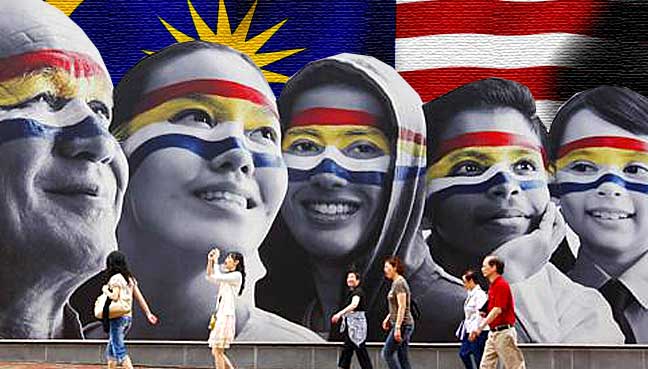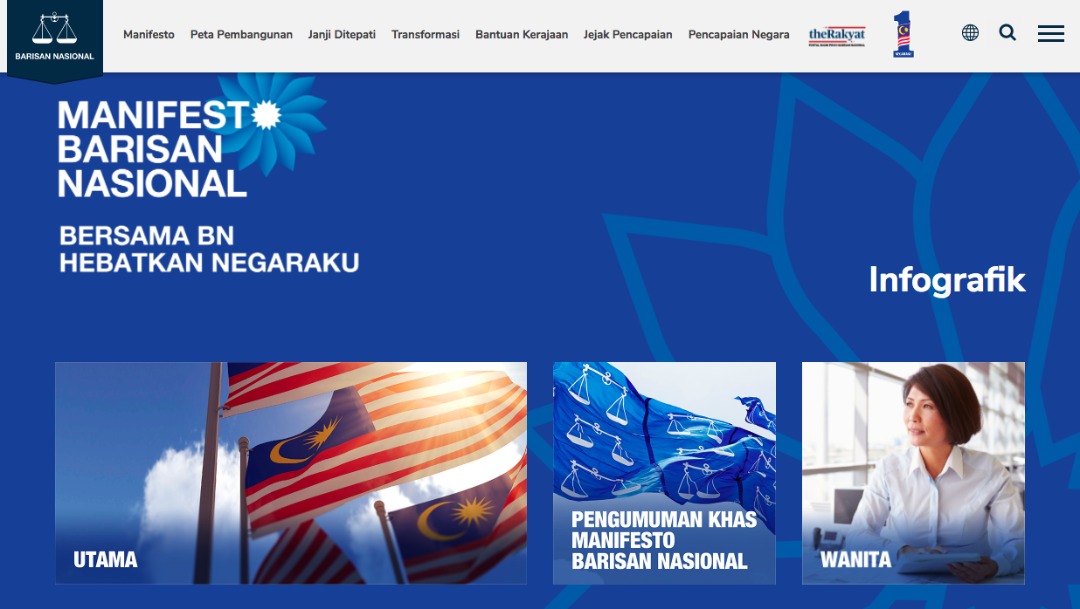14 Key Highlights From BN's 'Make Malaysia Greater' Manifesto For GE14
Barisan Nasional's election manifesto was launched on Saturday, 7 April.
Barisan Nasional (BN) chairman Datuk Seri Najib Tun Razak unveiled the coalition's manifesto for the 14th General Election (GE14) on Saturday, 7 April
According to media reports, about 40,000 BN supporters inside and outside of the Axiata Arena in Bukit Jalil, Kuala Lumpur cheered on as Najib made the announcement.
Themed 'Bersama BN, Hebatkan Negaraku' (With BN For A Greater Malaysia), the 220-page election manifesto includes 364 pledges divided into 14 thrusts.
1. The people's economy
• Raising minimum monthly salary rates to at least RM1,500 within five years.
• TN50 Public Transport Pass (costing between RM50 – RM150) will be introduced to provide unlimited monthly access to public transport for students, working youths, senior citizens and the disabled.
• Broadband subscription costs to be reduced by 50% while the broadband speed will be increased by twofold.
• Income tax exemption for parental healthcare to be increased from RM5,000 to RM10,000.
• Direct incentives to farmers, fishermen, smallholders, settlers, and the urban poor.
2. Sustainable and prosperous national economy
• Allocation of RM1 billion through the Halal Development Fund to stimulate the Halal Economy as a growth driver of the country's economy.
• Expanding the practice of flexible work arrangement in the public sector, and rewarding companies that adopt the system with incentives.
• Revising individual and corporate income tax rates.
• Providing grants and credit guarantee opportunities to Small and Medium Enterprises (SMEs).
• Implementing food security policies to ensure sufficient access to safe and nutritious food while reducing the nation's reliance on food imports.
• Reducing dependency on foreign workers to 15% of the country's entire workforce.
• Creating special areas to support food truck businesses.
• Speeding up the development of the Malaysian Vision Valley, that is projected to create 1.3 million job opportunities.
3. People-centred housing
• Establishing a special bank to facilitate loans for affordable and low-cost housing priced RM300,000 and below.
• Providing tax incentives or development funds to banks and housing developers that offer rent-to-own schemes.
• Providing a Public Housing Assistance Scheme to assist renters who may be categorised as poor or Persons with Disabilities (PWDs).
• Providing opportunities to government retirees and their children to purchase units of Perumahan Penjawat Awam 1Malaysia (PPA1M) while introducing a quota of 10,000 PPA1M units for Royal Malaysia Police (PDRM) personnel.
• Constructing more FELDA community houses.
• Boosting the number of 1Malaysia Youth Transit Homes.
• Upgrading long-houses in Sarawak, water-houses in Sabah, Orang Asli
houses and estate workers housing units in the Peninsula.
• Ending the policy of Bumiputera lot discounts for property valued at RM1 million and above.
4. Accelerating human capital, education excellence
• Providing one-off aid of RM1,500 for the children of BR1M recipients that enrol in higher education institutes.
• Upgrading all dilapidated schools in rural areas within five years.
• Offering special incentives such as tax exemptions to employers that provide childcare facilities.
• Reducing the costs of transportation, government services, and education-related necessities through introduction of special student discount cards.
• Expanding high speed Internet access (100 Gbps) to all public universities
• Implementing appropriate classroom sizes and reducing teachers' administrative workload as well as providing better teaching-aid equipment.
• Improving English language proficiency in schools through the Dual Language Programme (DLP), High Immersion Programme (HIP), and the introduction of English medium schools in Sabah and Sarawak as pilot projects.
• Reducing dropout rates among Orang Asli students and increasing the number of literacy programmes in rural areas.
5. The people's safety is our priority
• Upgrading the country's defence and security equipment while increasing control posts and monitoring systems along the border.
• Continuing the 1Malaysia Resident Community grant for all residents’ associations to enable the purchase of security equipment and implement crime prevention programmes.
• Increasing security patrols in public housing areas in cooperation with residents.
• Expanding the number of Rakan Cop and trained Auxiliary Police to support crime prevention efforts in neighbourhoods.
• Increasing the number of Voluntary Patrolling Scheme members to increase security controls and preserve the peace in areas with high crime rates.
• Prioritising the welfare and wellbeing of security forces personnel through various initiatives and allocations.
6. Fulfilling and enabling the success of women
• Special initiatives to support single mothers.
• Single women to have opportunities in securing loans by permitting the combination of incomes with siblings or parents who fulfil eligibility requirements.
• Creating a Women Entrepreneurship Transformation Centre.
• Guaranteeing that women comprise a minimum 30% of the Dewan Negara with an amendment to the Federal Constitution.
• Ensuring that at least 30% of decision-makers in all sectors are comprised by women.
• Enacting the Sexual Harassment Act to protect victims from sexual harassment.
• Encouraging the private sector to allow pregnant mothers to leave work an hour early.
• Women returning to the working sector after taking a career break to take care of the family to receive a 24-month tax incentive.
• Providing incentives to companies that practise policies promoting work-life balance.
• Adopting the flexible work hour scheme for mothers with children aged two and below.
• Providing incentives to companies that provide childcare centres and facilities for breastfeeding mothers.
• Longer paternity leave for public sector employees, up to 10 days unrecorded leave.
• Allocating seven days of special leave per year for women who are caregivers to their children or immediate relatives who are ill.
7. The younger generation, inheritors of the future
• Increasing employability of unemployed graduates through various programmes including 'Apprenticeship Malaysia' in five pilot industries.
• Creating 10,000 job opportunities in social entrepreneurship through special funds from government-linked companies (GLCs).
• Providing routine, unconditional health screening at government health clinics for youths aged 35 and 40 years.
• Providing second chances to former juvenile convicts, drug-abusers, and women who became pregnant out of wedlock.
• Providing subsidies to rural youth who apply to get motorcycle (B2 class) licenses.
• Reducing the burden for young couples that intend to get married.
• Upgrading facilities in all Youth and Sports complexes, and all neighbourhood
mini-sports complexes.
8. Wellbeing of senior citizens and persons with disabilities
• Creating a special one-stop portal to expand employment opportunities for persons with disabilities.
• Increasing the representation of persons with disabilities in various sectors.
• Increasing tax incentive to companies that employ persons with disabilities.
• Providing more benefits and access to affordable education and care services to those with special needs in every district.
9. Strengthening nation building
• Continuing to disburse grants to all registered religious institutions that seek to
implement programmes of understanding and harmony among the people.
• Establishing a special non-Muslim unit and a special Non-Governmental Organisation (NGO) unit in the Prime Minister’s Department.
• The rights of Sabah and Sarawak under the Malaysia Agreement 1963 will be realised by consensus.
• Discarding the term "others" (lain-lain) under race selection in the government's online application system.
• Restructuring welfare aid to the needy according to number, frequency and priority, based on unique individual needs and cost of living in the locality.
10. Prioritising people's social wellbeing and quality of life
• Providing a more efficient garbage disposal and solid waste disposal service, especially in rural areas.
• Building more pocket parks in cities throughout the country and transforming abandoned sites and dilapidated buildings into community recreational spaces.
• Increasing the number of specialist physicians, hospitals, and 1Malaysia Clinics (K1M).
• Adding healthcare services such as hemodialysis, treatment aid fund and pensioner healthcare services.
• Upgrading and building new hospitals and health clinics with an increase in Mobile Medic Team members.
• Introducing dual-function care centres for children and senior citizens.
• Establishing at least one Internet Centre with a minimum speed of 20 mbps in each State Legislative Assembly area for the local community use.
11. People's infrastructure and enhancing connectivity
• Upgrading and building of airports.
• Building a Rapid Transit System (RTS) linking Johor Bahru and Singapore.
• Building the Kuala Lumpur-Singapore High Speed Rail (HSR), the East Coast Rail Line (ECRL), and the Gemas-Johor Bahru dual-track railway line.
• Upgrading, building, expanding, and completing various projects including the Central Spine Road, Phase 3 of the Light Rail Transit (LRT) and the Mass Rapid Transit (MRT) in Klang Valley, and the third phase of the East Coast Expressway, among others.
• Strengthening transportation networks and interconnectivity in Sabah and Sarawak by upgrading 12,500 kilometres of rural roads.
• Building more Urban Transformation Centres (UTC) and Rural Transformation Centres (RTC) throughout the country.
12. Strengthening the Bumiputera agenda and defending Islam
• Establishing the Al-Quran University to produce more huffaz graduates.
• Complementing tahfiz schools with Giat MARA skills training scheme.
• Establishing a committee to empower the syariah court, as well as a committee on the harmonisation of syariah and civil courts.
• Introducing a syariah-compliant Home Sale and Purchase Agreement to improve
the existing Islamic banking system.
• Restructuring aid to the Orang Asli.
• Increasing the number of suraus that are allowed to hold Friday prayers.
• Establishing a special fund to upgrade, the education and safety regulations of religious schools to meet national standards.
13. Good governance and citizen participation
• Introducing the Public Petition mechanism for all major issues, in which online petition that receives more than 30,000 signatories will get feedback from the government.
• Increasing the usage of online application systems.
• Enacting the Fake News Act.
• Drafting the Political Funds Act to monitor contributions and expenses of political parties in Malaysia.
• Investigate any public complaints on injustices and weaknesses in ministry, department and government agency services by establishing an Ombudsman.
• Introducing the iKepoh application to enable the public to lodge complaints to Local Councils (PBT) via smartphones.
14. Celebrating diversity, bridging the gap
• Striving to attract more non-Bumiputera communities to join the civil service.
• Increasing the intake of non-Bumiputera students into public universities.
• Providing a special fund for Sabah and Sarawak entrepreneurs.
• Abolishing different price labelling of goods in the Peninsular, Sabah, and Sarawak.
• Special allocations for various entities such as for the Kadazandusun Chair in Universiti Malaysia Sabah (UMS ) to elevate research related to Kadazandusun language, culture, and literature.
What do you think of BN's manifesto? Let us know your thoughts in the comments section below.
To view the infographics of Barisan Nasional's manifesto, visit its official website here.



